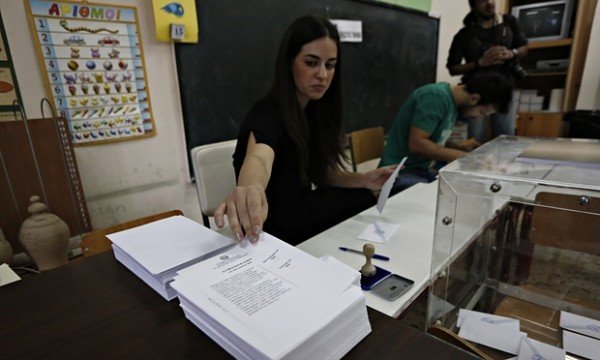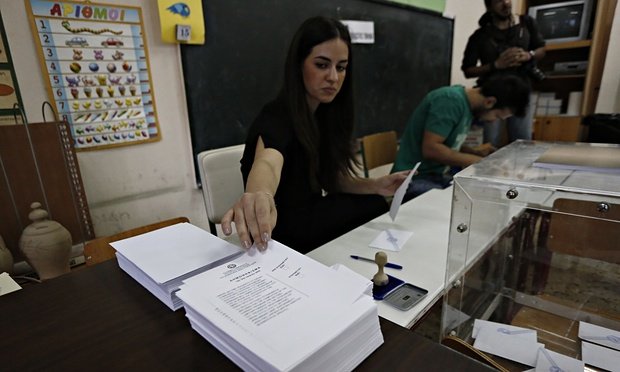Greek people decisively rejected the terms of an international bailout, the first results from a controversial debt referendum have shown as two-thirds of ballots were counted.
Figures published by the interior ministry showed 61% of those whose ballots had been counted voting “No”, against 39% voting “Yes”.
Greece’s governing Syriza party campaigned for a “No”, saying the bailout terms were humiliating.
The “Yes” campaign warned this could see Greece ejected from the eurozone.
Some European officials had also said that a “No” would be seen as an outright rejection of talks with creditors.
However, Greek government officials have insisted that a “No” vote would strengthen their hand and that they could rapidly strike a deal for fresh funding in resumed negotiations.
Greek banks will reopen by July 7, they say.
Reacting to the result, Greek Finance Minister Yanis Varoufakis called it “a big yes to a democratic Europe”.
Yanis Varoufakis said Greece would be “positive” in negotiations with its creditors.
Euclid Tsakalotos, Greece’s deputy foreign minister, told Star TV that two developments would allow Greece to pursue “a solution that is financially viable”.
“Firstly, the government now has a new popular mandate and the second is the latest [International Monetary Fund] report which says that the Greek debt is unsustainable.”
Greece had been locked in negotiations with its creditors for months when the Greek government unexpectedly called a referendum on the terms it was being offered.
Banks have been shut and capital controls in place since June 29, after the European Central Bank declined to give Greece more emergency funding.
Withdrawals at cash machines have been limited to €60 per day.
State Minister Nikos Pappas, a close ally of Prime Minister Alexis Tsipras, said it was “absolutely necessary” to restore liquidity to the banks now the referendum was over.
Italian Foreign Minister Paolo Gentiloni tweeted: “Now it is right to start trying for an agreement again. But there is no escape from the Greek labyrinth with a Europe that’s weak and isn’t growing.”
Belgium’s finance minister said the door remained open to restart talks with Greece “literally, within hours”.
Eurozone finance ministers could again discuss measures “that can put the Greek economy back on track and give the Greeks a perspective for the future,” he told the VRT network.
President Francois Hollande and German Chancellor Angela Merkel are scheduled to meet in Paris on July 6 to discuss the situation, the French president’s office said.
Greece’s latest bailout expired on June 30 and Greece missed a €1.6 billion payment to the IMF.
The European Commission – one of the “troika” of creditors along with the IMF and the European Central Bank – wanted Athens to raise taxes and slash welfare spending to meet its debt obligations.
Greece’s Syriza-led government, which was elected in January on an anti-austerity platform, said it had been presented with an “ultimatum”.
The Greek government’s opponents and some Greek voters had complained that the question on the ballot paper was unclear. EU officials said it applied to the terms of an offer that was no longer on the table.
The projected turnout in Sunday’s referendum was about 60%.
https://www.youtube.com/watch?v=ElvC1P16BtY
